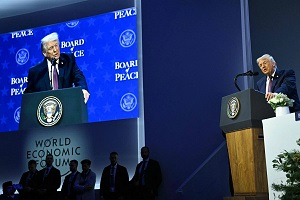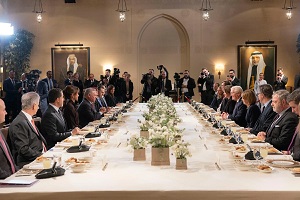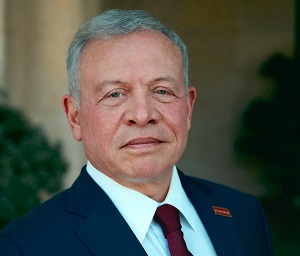
Jonah Shepp, The Jordan Times
AMMAN — The Amman Symphony Orchestra (ASO) could face closure this year amid a severe shortfall in funding that stakeholders say has delayed the payment of musicians’ salaries and left the orchestra scrambling for donations.
The Greater Amman Municipality (GAM) has been the main stakeholder in the orchestra, a semi-autonomous entity operating under the National Music Conservatory (NMC), since its inception in 2007.
A few months ago, however, as GAM underwent restructuring to curb a mounting budget deficit, half of the funds the municipality had allocated to the orchestra for the 2011 fiscal year were lost, according to Haitham Jwienat, acting GAM city manager and a member of the NMC’s board of directors.
“Originally, in 2011 an amount of JD300,000 was allocated as financial support for the ASO, but due to the current financial difficulties, only JD150,000 was paid,” Jwienat told The Jordan Times via e-mail, stressing that in his view, “the orchestra is an asset to the country because it carries Amman’s name and symbolises Jordan’s culture”.
“As for GAM’s financial support for the ASO for 2012, it is still being revised until GAM’s budget is approved, and for the latter to be approved, it requires the approval of GAM’s council and the approval of the Council of Ministers,” he explained.
Although GAM is still willing to fulfil its commitment to supporting the orchestra financially, the decision is no longer in the hands of municipal authorities, raising concerns over whether that support is sustainable, said Hana Shahin, executive director of the King Hussein Foundation (KHF), the parent organisation of the NMC.
“There has been a misunderstanding about the relationship between GAM and the orchestra,” Shahin told The Jordan Times. “We are trying to explain to decision-making authorities in the government that GAM’s contribution to the ASO is not a donation. It’s about providing a public service.”
Acknowledging that GAM, like other public institutions in the Kingdom, is facing a difficult situation with regard to its finances, the KHF director stressed that as part of Amman’s vision of becoming a cultural hub — one of the criteria upon which it was selected to host the 2016 Universal Forum of Cultures — “it is imperative to have the ASO thriving and sustained”.
A symphony orchestra, she explained, does not only promote the image of Jordan as a place where high culture is cherished — a quality that helps attract international investors — but also benefits the Kingdom’s economy and social development by providing non-traditional job opportunities for youth, granting BA degrees in music therapy and giving underprivileged young Jordanians scholarships to study music.
“We’re trying to create a music industry to help in the overall development of Jordan,” she emphasised.
“The vision of the NMC is to develop possibilities for the youth to work, and to give the people living in Amman and Jordan the opportunity to learn more about their music, the Western musical heritage, and the world musical heritage,” NMC Director Kifah Fakhouri added, explaining that in addition to the full orchestra, the ASO includes several chamber ensembles that perform both Western and Arabic music.
The orchestra, many members of which are teachers in the conservatory as well, also contributes to music programmes at the Kingdom’s universities, cooperates with the Jordan Armed Forces to develop the skills of the army band, and in general forms the backbone of formal musical education in the capital, Fakhouri said.
The ASO’s annual budget is around JD800,000, Fakhouri said — a shoestring for a national symphony — so losing GAM’s commitment in whole or in part would be devastating.
“And JD800,000 is salaries and basic costs, not even development costs,” he underlined. “If we want to buy a new instrument, we can’t.”
By comparison, the budget of the Baltimore Symphony Orchestra, which represents a US city about one-third the size of Amman, ran a balanced budget of over $24 million in 2009-10, according to US local media.
Shahin pointed out that the NMC (whose fiscal sustainability is not in doubt) and the ASO are unusual among cultural institutions in Jordan in that public funds make up a minority of their budgets, most of which come from private philanthropy and earned income such as ticket sales.
Yet as the orchestra strives to keep its costs as low as possible while maintaining a high level of quality, with GAM’s contribution in doubt, it simply does not have enough money to operate, she said.
“We are hoping to raise enough public and private financing to sustain the orchestra in the short term and the long term. If not, the ASO will stop by the end of August 2012.”
Already, Fakhoury said, orchestra members’ salaries are two months late, and they are being paid in dribs and drabs as small donations trickle in. While no members have yet quit over the financial troubles, they have had a severe impact on morale.
“Some of our musicians are complaining, of course. If we get JD1,000, for example, we distribute it among them, so it’s like peanuts,” the NMC director lamented.
If the orchestra were forced to close its doors, he warned, the consequences would be more dire: Over 90 existing jobs would be lost and at least 500 future job opportunities squandered.
“Those who are studying music in the conservatory,” he added, “will lose hope in continuing their studies”, facing grim prospects for employment as professional musicians.
The ASO might be able to sustain itself through private and corporate philanthropy and smaller donations from concertgoers, Shahin said, but public funds are key to its long-term sustainability.
“We’re leaving it to the government to understand our role and allocate from wherever they deem possible,” she said.
The orchestra is also seeking new sources of private financing through strategies such as persuading companies to include funding for the arts in their corporate social responsibility programmes. The Friends of the ASO, a support organisation, has been established to raise awareness and funds through benefit concerts and other activities.
“We do small things to encourage individual gift giving,” said Victoria DeKlerk, the wife of Netherlands Ambassador to Jordan Piet DeKlerk and the founder of the Friends of the ASO.
She warned, however, that corporate philanthropy is hard to secure without a solid base of public funding.
“Companies are only interested in giving to organisations that are sustainable, and if you don’t have government funding, you’re not considered sustainable.”
In the meantime, Shahin said, the KHF has contributed from its own resources, although its ability to do so is limited as most of its funds are earmarked for other, financially independent programmes.
Although policy makers and donors may find it difficult to justify funding for the arts in times of fiscal distress, the KHF director stressed that the government and other backers of the ASO should bear in mind the variety of benefits Jordan gleans from maintaining a quality symphony orchestra, as well as what would be lost if it were to fail.
“We understand the financial hardship, but we cannot neglect culture.”
Latest News
-
 Iran atomic energy chief says no country can deprive Tehran of enrichment rights
Iran atomic energy chief says no country can deprive Tehran of enrichment rights
-
 US to host first Gaza ‘Peace Board’ meeting Thursday
US to host first Gaza ‘Peace Board’ meeting Thursday
-
 King, German president discuss strengthening cooperation, regional developments
King, German president discuss strengthening cooperation, regional developments
-
 King extends Ramadan greetings to Arab, Islamic nations
King extends Ramadan greetings to Arab, Islamic nations
-
 Ramadan begins on Thursday in Jordan — Grand Mufti
Ramadan begins on Thursday in Jordan — Grand Mufti